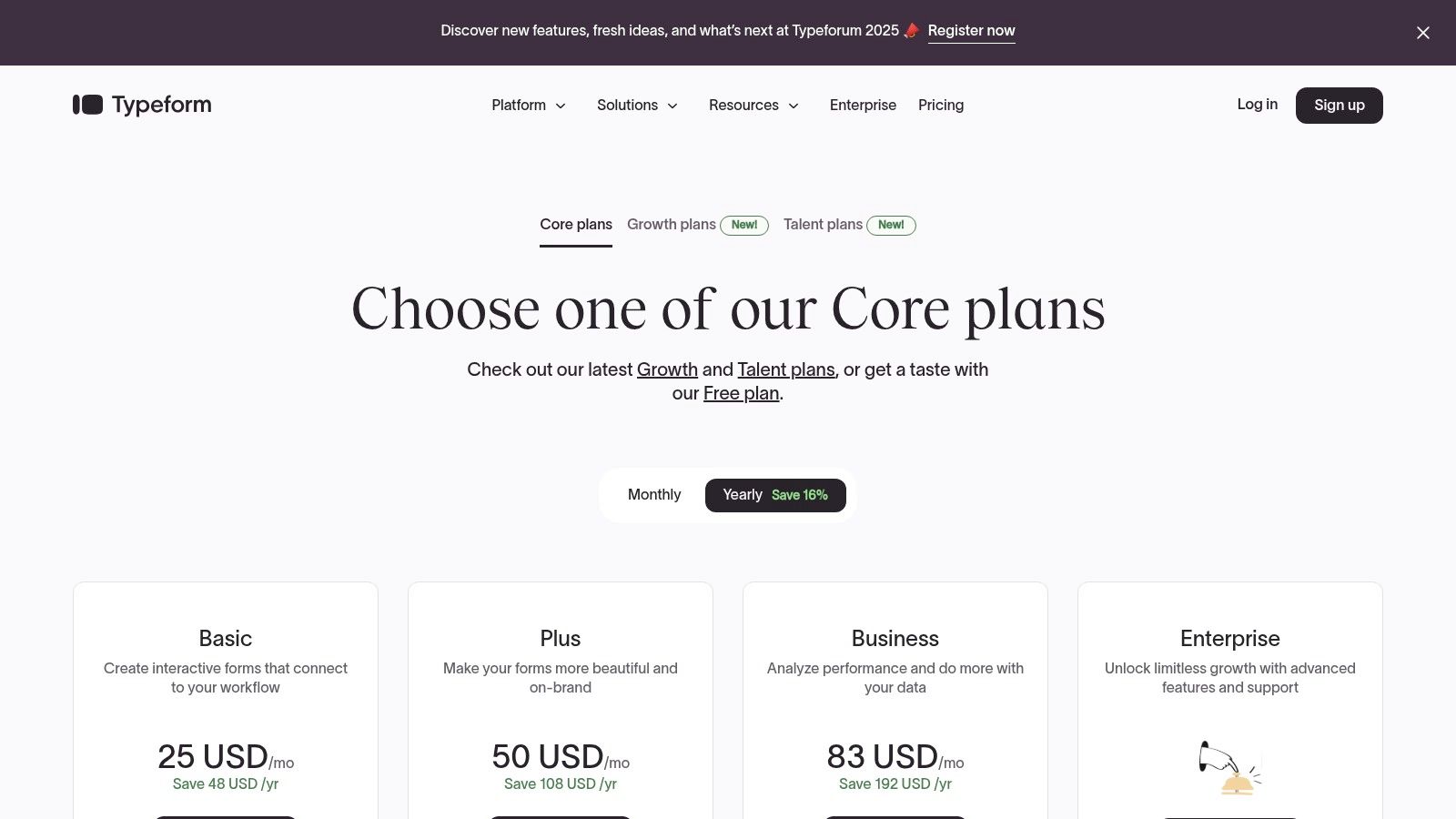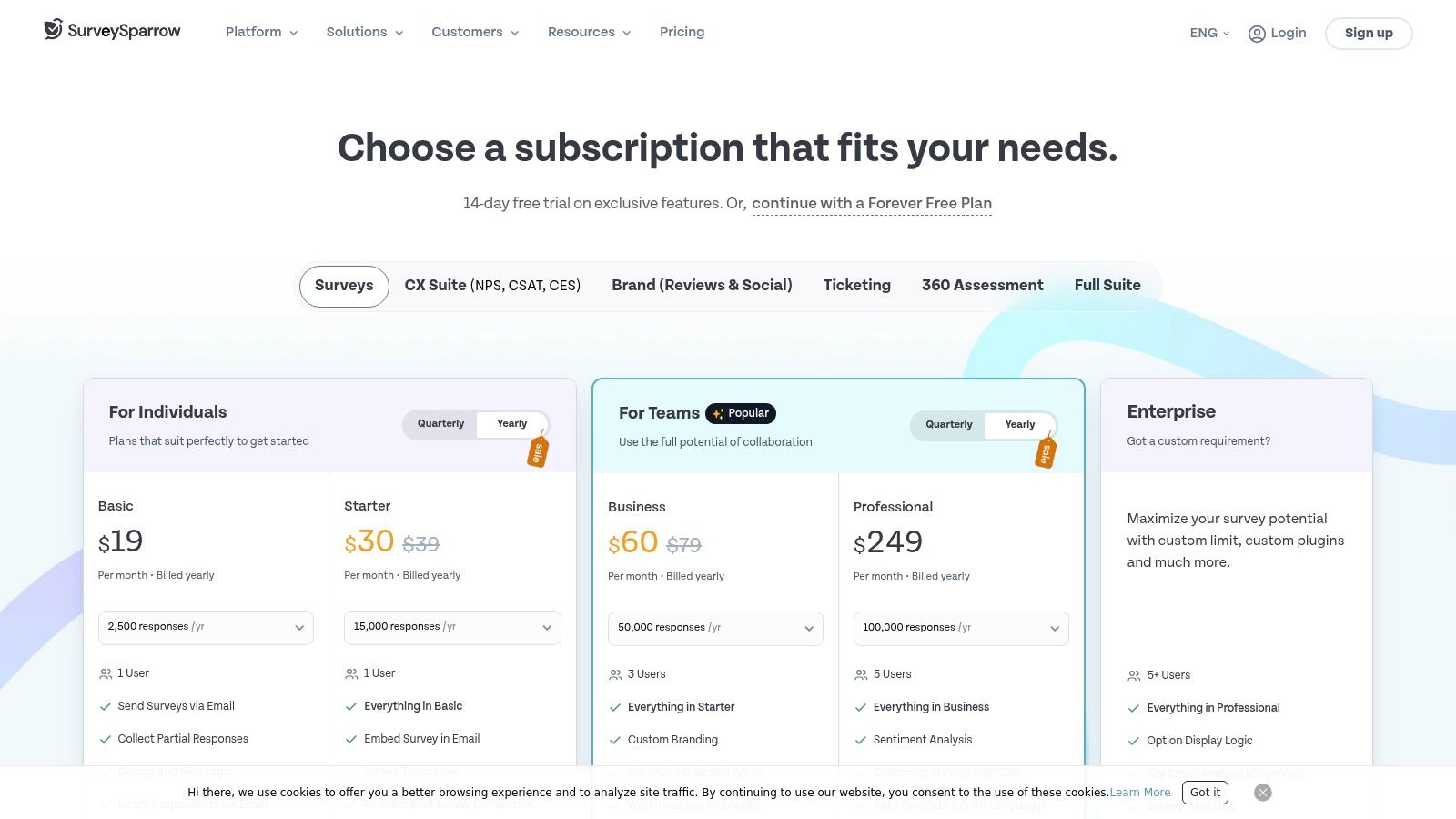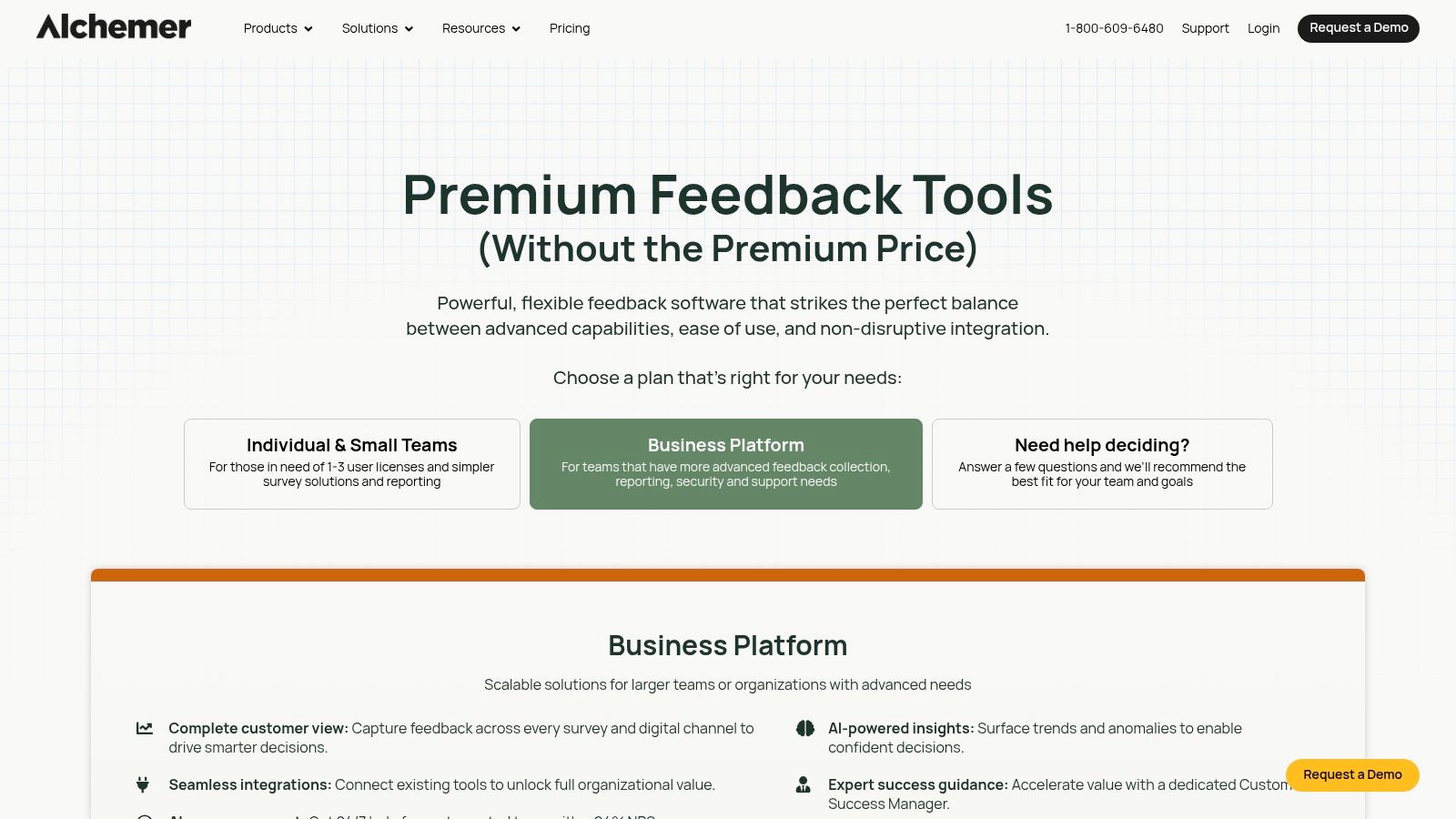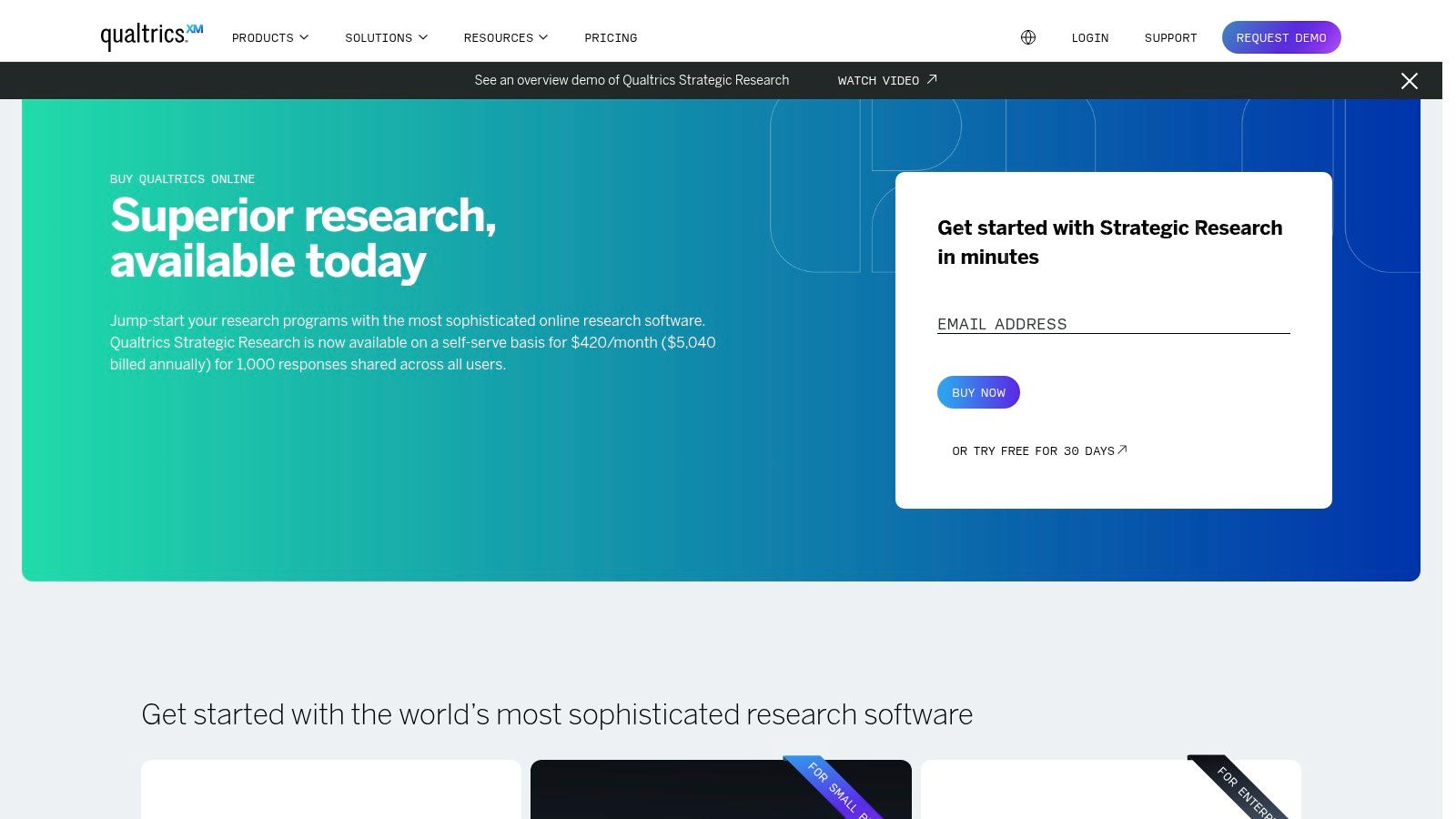Stop Guessing. The Best Survey Tools for Founders Who Actually Want the Truth.
Discover the best survey tools for small business in 2025. Find easy-to-use solutions to gather feedback and boost your business success.
Posted by
Related reading
Why Reputation Management Tools Matter More in 2025 Than Ever
Learn how reputation management tools help businesses track reviews, analyze feedback, and protect brand image. A modern guide with AI-driven insights using Backsy.
Sentiment Analysis Isn’t a “Nice-to-Have”. It’s a Lie Detector for Your Product.
Founders love chasing features, but customers speak in emotions. Learn what sentiment analysis really is, how it works, and how it reveals the truth behind your feedback. No fluff.
Your Customers Are Telling You How to Beat Your Competitors, but You're Not Listening
What is text analytics? A blunt guide for founders on turning messy customer feedback into a data-driven roadmap for growth and revenue.
Let's cut the crap. You think you know what your customers want. You've glanced at the support tickets, you've seen the five-star reviews your mom left, and you've convinced yourself your gut is a finely tuned instrument of market prediction.
It’s not. You’re flying blind, navigating by ego and guesswork.
The truth is buried in the unspoken frustrations, the 'it's fine, I guess' comments, and the silence of users who just churn without a word. Ignore your customers, and you’ll be lucky to survive the quarter. The only way to win is to stop 'collecting feedback' and start extracting intelligence. It’s not about making people happy; it’s about finding the pain you can solve so profitably that they can't imagine leaving.
This isn't another HubSpot listicle. This is a founder-to-founder guide on the best survey tools for small business that actually get you answers, not just data points for a meaningless slide deck.
The Takeaway: Your assumptions are your most expensive liability.
The Problem With Most "Feedback"
You send out a 20-question survey asking users to rate your onboarding from 1 to 5. What do you learn? Nothing. A '4' tells you jack shit. It doesn't tell you they almost churned because of a confusing tooltip or that they'd pay double for one missing integration.
Sanitized, multiple-choice data is corporate theater. It’s designed to create pretty charts that confirm existing biases, not to unearth the ugly, profitable truths that force you to change course. You need the raw, unfiltered rants. The spontaneous praise. The voice memos detailing a saved account. That's where the alpha is.
The Takeaway: If your survey doesn't allow for rants, it's a waste of time.
A Founder's No-BS Breakdown of Survey Tools
We’ve battle-tested these platforms. Some are scalpels, some are sledgehammers. Pick your weapon. And once you've gathered this intel, you'll need a system to manage these valuable relationships. For those starting from scratch, exploring free CRM solutions for startups is a logical next step to act on what you learn.
1. Backsy.ai: The Truth Extractor
Most survey tools are built on a lie. They promise insights but deliver multiple-choice data that only confirms what you already suspect. Backsy isn’t a form builder; it’s a qualitative intelligence engine. It’s designed to capture the unvarnished truth from open-ended text and voice notes, because that's where the real signal is.
Its AI sifts through every rant and rave, automatically tagging themes and sentiment. It shows you what customers actually care about, not just what they were willing to click in a form. It's for founders who are tired of surface-level data and want to build their product roadmap on a foundation of actual customer pain.
The Takeaway: Stop asking people to rate their pain on a scale of 1-5 and just listen to them describe it.
2. SurveyMonkey: The 800-Pound Gorilla
This is the default choice for a reason. It’s a mature, feature-rich platform that lets you go from zero to a sophisticated survey in under an hour. It's the safe, reliable Toyota Camry of feedback tools. You get robust analytics, a massive template library, and integrations that plug into everything.
The free plan is a joke, but paid tiers unlock its real power. The biggest trap is cost creep. Their response limits are strict, and overages will nickel-and-dime you to death. It's a solid, all-in-one tool that can scale, but watch your wallet. It's a key part of many ways to collect customer feedback, but it's not the only way.
The Takeaway: A powerful, safe bet for traditional quantitative surveys, if you can afford it.
3. Typeform: The Designer's Choice
If SurveyMonkey is an Excel spreadsheet, Typeform is a conversation. Its core belief is that a beautiful, one-question-at-a-time interface gets more completions. And it’s right. This is the tool you use when your brand is everything and a clunky form would be an insult to your users.

The downside is the cost-to-response ratio. It gets expensive fast. You’re paying a premium for aesthetics and user experience. If your customers are design-savvy and your brand needs to look sharp at every touchpoint, it’s worth the price.
The Takeaway: Use it when the experience of giving feedback matters as much as the feedback itself.
https://www.typeform.com/pricing?utm_source=openai
4. Jotform: The Swiss Army Knife
Jotform is less a survey tool and more a data-collection engine. It can handle feedback, process payments, gather e-signatures, and automate internal workflows. It's the ultimate utility player. For a small business, this means one tool can replace three, saving you money and headaches.
Its built-in analytics aren't as deep as SurveyMonkey’s, but its free plan is one of the most generous out there. If you need a versatile workhorse that can handle everything from client intake to post-purchase surveys, Jotform is a powerful, cost-effective choice.
The Takeaway: If you need a form that does more than just ask questions, this is your tool.
https://www.jotform.com/nonprofit/pricing/?utm_source=openai
5. Google Forms: The Scrappy Workhorse
Sometimes the best tool is the one that’s free and you already know how to use. Google Forms is the no-frills solution for when you need answers in the next ten minutes. Its killer feature is the seamless, real-time integration with Google Sheets. Every response instantly populates a spreadsheet, ready for you to slice and dice.
It’s ugly. Branding options are minimal. Advanced logic is non-existent. But it’s fast, free, and familiar. For internal polls, quick pulse checks, or validating an idea on a zero-dollar budget, its simplicity is a feature, not a bug. You can always analyze survey data from it later.
The Takeaway: If your budget is zero and you need answers now, stop reading and use this.
https://workspace.google.com/intl/en_GB_ALL/products/forms/?utm_source=openai
6. Microsoft Forms: The Corporate Staple
If your team lives in Microsoft 365, using anything else for internal surveys is just creating unnecessary work. It integrates flawlessly with Teams, SharePoint, and Excel. Like Google Forms, it's not a heavyweight champion, but it's already part of your workflow, which means your team will actually use it.
It's basic by design. You won't find advanced logic or deep customization. But for quick team polls or simple feedback forms that feed directly into an Excel sheet you can analyze, it’s a zero-friction, zero-cost (with subscription) solution.
The Takeaway: If your company runs on Microsoft, this is the path of least resistance.
https://www.microsoft.com/en-us/microsoft-365/microsoft-forms
7. Zoho Survey: The Ecosystem Play
For businesses already invested in the Zoho ecosystem (CRM, Desk, etc.), this is a no-brainer. It integrates seamlessly, turning feedback into a connected part of your operations. Trigger a satisfaction survey after a support ticket closes in Zoho Desk. Pipe CRM data into a survey for personalization. It's a pragmatic, budget-friendly tool that just works.
The interface is more functional than beautiful, but it offers incredible value and tight integration. It’s a smart way to manage your brand's image by gathering direct feedback, a key component of the best online reputation management tools.
The Takeaway: If you’re a Zoho shop, this isn’t a choice, it’s your default.
8. SurveySparrow: The Engagement Specialist
SurveySparrow’s entire reason for being is to make surveys less boring. Its chat-like interface is designed to boost completion rates by feeling more like a conversation. It's a great tool for brands that need to collect feedback without boring their audience to death.

Their pricing tiers can be a maze, with different suites for different needs. But if you believe a better user experience will get you better data (and it will), SurveySparrow is a strong contender.
The Takeaway: A great option when you’re worried your customers have survey fatigue.
https://surveysparrow.com/pricing/?utm_source=openai
9. Alchemer (formerly SurveyGizmo): The Power User's Friend
Alchemer is what you graduate to when you've outgrown the basic tools. It strikes a balance between user-friendly design and research-grade power. It's for businesses that need advanced logic and robust reporting but don't want the complexity of an enterprise platform.

It's not cheap, but its plans come with very high response limits, making it cost-effective for high-volume feedback. If you see customer data as a strategic asset, not just a vanity metric, Alchemer is built for you.
The Takeaway: For when you need more analytical firepower without hiring a data scientist.
https://www.alchemer.com/plans-pricing/?utm_source=openai
10. QuestionPro: The Scalable Alternative
QuestionPro offers a shockingly generous free plan and dedicated pathways for startups. It’s a robust platform that scales from simple polls to complex market research, offering enterprise-grade features at a price that doesn't make you wince.
The interface has a steeper learning curve than some others because it’s packed with features. But for a business with big ambitions, it provides a long runway for growth before you need to consider a true enterprise solution.
The Takeaway: An underrated powerhouse for the small business that plans to get big.
https://www.questionpro.com/pricing/?utm_source=openai
11. Qualtrics: The Enterprise Bazooka
Qualtrics is what happens when a survey tool gets a Ph.D. in data science. It’s an enterprise-grade research platform, not a simple form builder. If you need to do academic-level research—conjoint analysis, heatmaps, advanced statistical modeling—this is your weapon.

For most small businesses, this is like using a sledgehammer to crack a nut. The complexity is immense, and you’ll pay for features you’ll never touch. But if your business lives and dies by deep, quantitative research, it’s the gold standard.
The Takeaway: Overkill for 99% of founders, but indispensable for the other 1%.
https://www.qualtrics.com/buy-online/?utm_source=openai
12. Capterra: The Cheat Sheet
Capterra isn’t a survey tool; it’s a software marketplace where you can compare hundreds of them. This is your first stop. It cuts through the marketing fluff with verified user reviews and side-by-side feature comparisons. It turns a week-long research project into an afternoon.
The only catch is to be mindful of sponsored listings at the top. Use the filters to find exactly what you need based on features, price, and integrations.
The Takeaway: Don’t demo a dozen tools; use this to shortlist your top three.
https://www.capterra.com/survey-software/?utm_source=openai
Stop Reading and Go Get Some Damn Answers
The tool is only 10% of the battle. The other 90% is having the guts to ask the right questions and the discipline to act on what you hear, even when it stings.
Most founders are terrified of what they might find out. They’d rather cling to their own assumptions in a conference room than face a single piece of raw, unfiltered customer feedback. Don't be most founders. Your customers are handing you the roadmap to their wallets for free. All you have to do is read it.
Finding the best survey tools for small business isn’t about picking the one with the most features. It’s about picking the one you will actually use to stop guessing and start building something people want.
The Takeaway: Pick one. Ask a better question tomorrow than you did today. That’s the whole game.
Stop guessing what your customers mean in their open-ended feedback and let Backsy’s AI instantly find the signal in the noise for you.